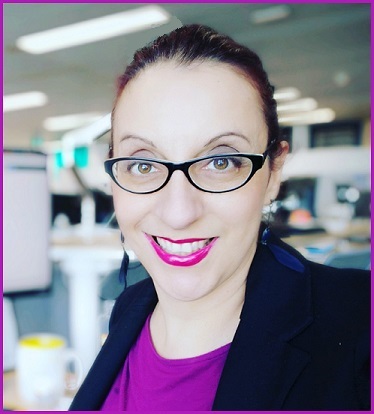You’re in the job interview absolutely nailing it – and then it comes.
That question. The one you never know how to answer.
You feel that sick feeling rising in your stomach as you realise you don’t know what to say.
We’ve all been there.
Hays Recruiting asked 1,600 skilled professionals in Australia which interview questions always stump them.
“When we spoke to people, five questions were cited again and again as the ones people struggle with the most,” says Nick Deligiannis, Managing Director of Hays in Australia & New Zealand.
“Interviewers often ask these questions to gauge a candidate’s ability to react effectively when under pressure or taken by surprise.
“So, from an interviewee’s perspective, knowing how to answer these testing job interview questions well can help you stand out.”
Let’s take a look at what these questions are and how you might answer them thoughtfully and confidently.
1. Tell me about yourself
You may not understand why an interviewer would ask this.
Your initial response might be, “Didn’t you read my resume?” but that’s not what the interviewer is asking.
This question will often be the first in an interview so it’s your chance to make a good impression with a confident opening and set the tone for the rest of the interview.
Interview coach Pamela Skillings, co-founder of Big Interview, recommends you avoid waffling about anything that doesn’t relate to work, such as your hobbies or pets.
“Think of it as your elevator pitch,” she explains. “Keep it focused and short, ideally less than a minute, and no more than two minutes.”
Don’t simply rehash your CV – assume the interviewer has read it and that something in there piqued their interest enough to call you in for an interview.
Deligiannis says that by asking this question, the interviewer wants to know three things: “your relevant educational and professional background; the key skills and expertise you have which directly relate to this opportunity; and what you are looking for in your next role and why this role appealed to you.”
Hay’s suggested answer: “I am a Business Management graduate with a Masters Degree in Digital Marketing. Since leaving university I have enjoyed a two-year marketing career within the sports industry. During my time in this industry, I have been able to build upon my digital marketing expertise even further.
"I believe that my digital marketing skills are best showcased by an email marketing campaign I recently led, which increased our conversion rate by 10 per cent. My previous organisation has helped me develop the digital skills I have today, however, I believe that for the sake of progressing my expertise further, it’s time to move on.
"Therefore, I’m looking for a more challenging role within a fast-paced global organisation, where there’s plenty of room for me to grow as a marketing professional. That’s why I was so pleased to be invited to interview for this role.”
Big Interview’s suggested answer: “I have more than five years of experience as a technical project manager at top Wall Street companies. Most recently, I led the development of an award-winning new trading platform.
"I’m a person who thrives in a fast-paced environment so right now I’m looking for an opportunity to apply my technical experience and my creative problem-solving skills at an innovative software company like this one."
2. Why are you the best person for the job?
If you are uncomfortable speaking about your achievements, push that discomfort aside for your interview.
This is not the time to be humble.
The marketplace is competitive and fierce. What will you say to stand out?
To answer this question, focus on your key strengths and convince the interviewer that you would absolutely rock this job.
Assure her or him that you are well qualified and experienced to take on the role, that you enjoy working with teams, and feel you would be a great addition to the team at Company X. (It doesn’t hurt to mention the company by name.)
And here’s something you may not have considered: the answer to this question is bigger than just you.
“Every hire is a risk for the company,” says Skillings. “Your interviewer will be taking a personal career risk in recommending a particular candidate to hire. If the candidate performs well, the interviewer looks brilliant and gets a pat on the back – and maybe a bigger annual bonus.
“If the candidate turns out to be a dud – doesn’t perform well, doesn’t get along with the team, leaves the job prematurely, etcetera – the interviewer looks like a dummy and their professional reputation suffers.”
Hay’s suggested answer: “I have experience successfully managing projects through to completion, thanks to my stakeholder engagement skills and business acumen.
"I have the years of experience you require and thanks to an innovative approach to problem solving, I increased our customer satisfaction scores by 25 per cent year-on-year.
"My strong worth ethic and ability to go the extra mile have been recognised through promotions. I’m genuinely excited about this opportunity and the possibility of working here.”
Big Interview’s suggested answer: “Honestly, I almost feel like the job description was written with me in mind. I have the 6 years of programming experience you’re looking for, a track record of successful projects, and proven expertise in agile development processes.
"At the same time, I have developed my communication skills from working directly with senior managers, which means I am well prepared to work on high-profile, cross-department projects.
"I have the experience to start contributing from day one and I am truly excited about the prospect of getting started.”
3. What are your weaknesses?
Perhaps you never run on time. Maybe you’re hideously disorganised and rarely meet deadlines.
These are not the types of weaknesses a potential boss wants to hear about.
“Most candidates hate this question and consider it pointless,” says Skillings. “After all, they aren’t about to confess candidly to their biggest flaws in the middle of a job interview.”
However, the interviewer wants an answer, so before you rock up to your interview, decide on one or two of your weaknesses, and how you are working to overcome them.
“Make sure you select a weakness that is a nice-to-have skill, not a key requirement of the job,” says Deligiannis.
"Employers value lifelong learners, so by talking about the improvements you are making, you’ll show that you are solutions focused.”
Skillings recommends selecting a weakness that is “relatively minor and fixable.”
Importantly, a prospective employer wants to know what you are doing to address your weaknesses. Are you taking a course, meeting with a life coach, consulting mentors?
Be prepared with an answer about your weaknesses so your response turns out to be your strength.
Hays’ suggested answer: “I have been afraid of public speaking for a long time, but I recently completed a Toastmasters course and gave a presentation last week to my boss, which I’m really proud of.
"I have another presentation scheduled for next week, and I’ve asked a trusted colleague to critique my delivery afterwards so I can continue to develop my skills in this area.”
Big Interview’s suggested answer: “Sometimes I can be a bit too honest when I provide feedback to co-workers.
"My personality is naturally very straightforward and to the point, and most of my colleagues really value that, but I have learned that there are times on the job when more diplomacy is required.
"I took a training class on conflict management and it really opened my eyes to the need to communicate differently with different people. So now I am much better at providing constructive feedback, even if it doesn’t always come naturally.”
4. Where do you see yourself in five years?
This is such a clichéd question. Is anyone still with an employer for five years? Apparently they are, because this question is still asked with alarming regularity.
Here, an employer is looking for an indication that you are interested in developing your skills and advancing through your career.
They may also be looking for loyalty to the company which may be somewhat naïve in 2019, but you decide if you want to burst that bubble.
The company will be investing heavily in you (salary, superannuation, training etc) so they want to know you’re not the type to flit away too soon.
Skillings explains an interviewer wants to understand more about your career goals to work out how the position you’re applying for fits in with your grand plan.
“They care about your career goals because they want to hire someone who is motivated, proactive, and likely to stick around and work hard if hired,” she says.
“If succeeding in this role is important to you as part of your long-term career strategy, you are much more likely to perform well.”
Hays’ suggested answer: “In five years’ time I’d like to be seen as a valued employee who has deep expertise in XYZ.
"I believe I would have the opportunity to develop such expertise over time in this role. I’d also like to assume people management responsibilities – I read that your organisation has a great leadership training program, so in five years’ time I’d like to have completed it and be further developing my skills to eventually take on a leadership role.”
Big Interview’s suggested answer: “My goal right now is to find a position at a company where I can grow and take on new challenges over time.
"Ultimately, I’d like to assume more management responsibilities and get involved in product strategy. But most importantly, I want to work for an organisation where I can build a career.”
5. What is your salary expectation?
This question usually comes at the end of the interview, and even if you’ve done well up until this point, the salary question still has the potential to end the interview on a sour note if not answered well.
“Answering the consequential salary expectations question the wrong way can cost you a job offer,” says Skillings.
“It can also put you in an untenable situation by forcing you to consider a job at a less-than-desirable salary.
"After all, in some circumstances, the only thing worse than failing to get a job offer after an interview, is failing to get an offer that’s sufficient to support you and/or your family.”
Before the interview, investigate the going rate for jobs in your market. Recruiters such as Hays and Robert Half have salary guides, or you can take a look at sites such as Glassdoor or PayScale.
“When answering this question, it’s important not to undersell yourself – or conversely, price yourself out of consideration,” says Deligiannis. “Your best approach is to be open, honest and support your view with evidence.”
Hays’ suggested answer: “Based on my research of similar jobs as well as data from the recent Hays Salary Guide, I understand that comparable roles are currently offering between X and Y. My expectations are in line with this range.”
Big Interview’s suggested answer: “I’m more interested in finding a position that’s a good fit for my skills and interests. I’m confident that you’re offering a salary that’s competitive in the current market.”
Or, “Well, according to my research and past experience, my understanding is that $75-90K per year is typical based on the role and requirements."
*************************
Which interview question always stumps you? Let us know in the comments below.










